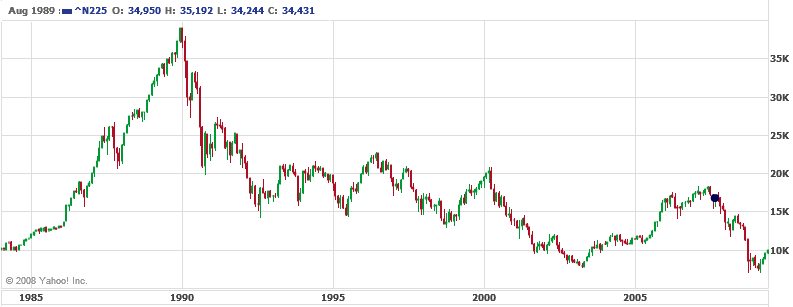obgyn65
Thinks s/he gets paid by the post
Additionally, without the bailout of the largest investment banks and others, a more massive collapse of the stock exchanges would have detonated a worldwide financial collapse. The stock market, IMO, is still much overvalued.
I have little doubt that on an historically basis stocks are overvalued. However the real question is what about on a relative basis? Are they overvalued compared to bonds, real estate, oil etc? I honestly don't know.


 .
.